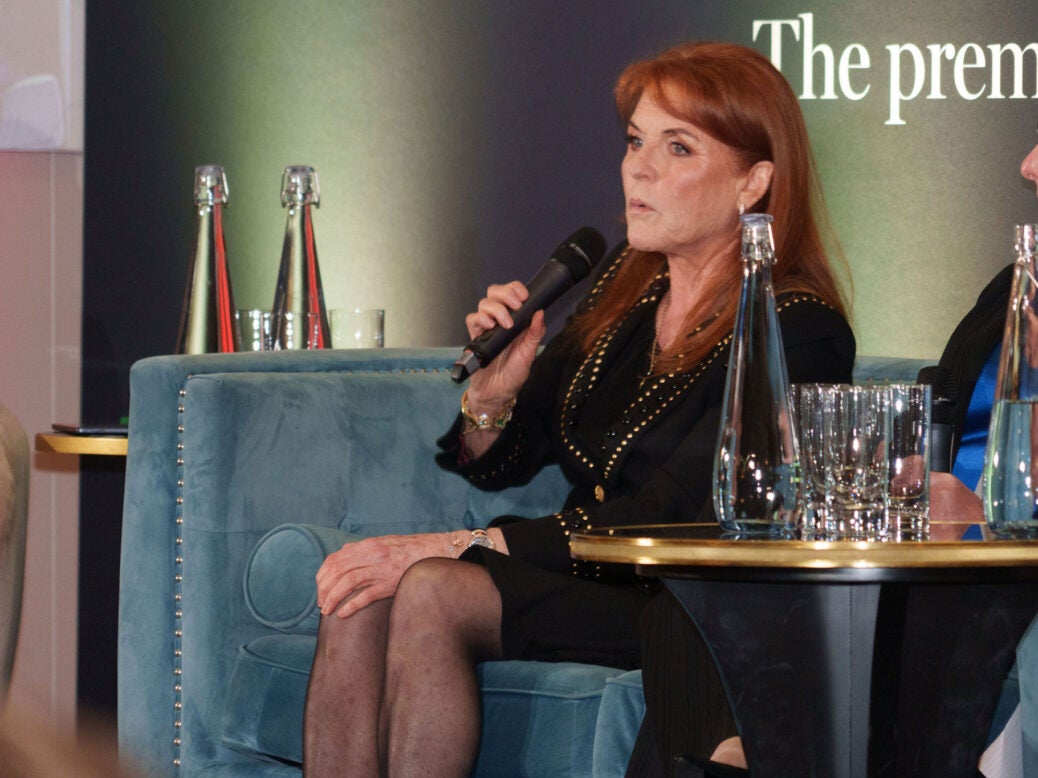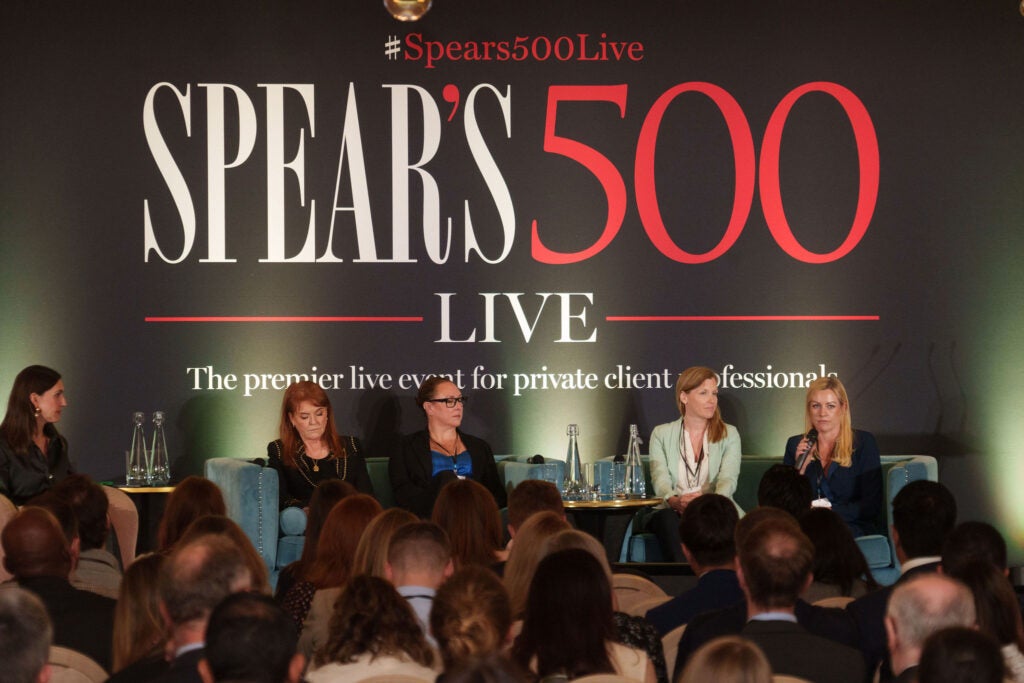
Match funding and impact investment are playing an increasingly crucial role in philanthropic giving among the ‘next gen’, experts told the audience at Spear’s 500 Live 2025.
Speaking at the event at The Savoy on 7 May, Sarah Ferguson, Duchess of York, said ‘match funding is the future’ of philanthropy, and that ‘now is the time to act’.
The Duchess joined a panel discussion entitled ‘Inspiring a new era of Great British philanthropy’, which was presented in association with Charities Aid Foundation (CAF) and Stewardship. The Duchess shared the stage with Amy Dorfman, a board trustee of charity JW3; Stewardship’s chief customer officer, Nicola Johnson; CAF’s head of impact and advisory, Ashling Cashmore; and the panel chair, journalist and author Stephanie Bridger-Linning.
[See also: Geopolitical and macroeconomic factors spell uncertainty for luxury sector]
‘We are in a bit of a crisis when it comes to philanthropy in the UK,’ Cashmore told the audience, mentioning numbers from CAF’s UK Giving 2025 Report, which found that only half of people in Britain gave to charity in the last 12 months – an all-time low since tracking began in 2016 – and that the number of young donors has dropped by a third since 2017.
CAF observed a similar trend in high-net-worth-donations, noting in its high-value giving report that HNWs in the UK only donated £7.96bn, a sum equivalent to merely 0.4 per cent of their investable assets.
The cost-of-living crisis, non-doms exiting the country and general financial instability all contributed to this drop in donations, experts from the panel said.
As a result, several charities in the country have seen cuts to their services or have had to shut down entirely. ‘We’ve got to make it better,’ the Duchess of York said, ‘and now is the time.’

Younger generations seek well-versed advisers
Traditionally, charities have looked to older generations for big donations. While this is still the case, ‘younger generations are very concerned with social issues’, Dorfman told the audience. Not only that, but the panel agreed that if advised correctly, younger HNWs would be ready to support their social values with financial contributions, using strategies such as match funding and impact investment, which have grown in popularity in recent times.
However, philanthropy has a ‘PR problem’, Cashmore said. ‘When people think about philanthropists, they think of billionaires and of American males who live very far away. I think it can be quite hard to see yourself in that paradigm,’ she added.
[See also: Rise of ‘alternative banking platforms’ poses challenge for established incumbents]
To ‘break down’ this barrier and ‘celebrate’ that philanthropic strategies are evolving, Cashmore believes the younger generation expects wealth advisers to be more familiar with the ways through which they can drive positive change in society.
‘Clients do really want to talk about philanthropy as part of a holistic view of their wealth. We should encourage more education around it and help wealth advisers build the confidence to support them, Cashmore said. She added: ‘A client recently told me “my advisers are there to think about the impact the world is having on my assets, but I want them to think about the impact my assets are having on the world”.’
The audience at the Savoy heard that there are several ways in which advisers can be supported in advising private clients on donations, from encouraging them to engage in conversation around giving to connecting them with philanthropy experts who can provide concrete solutions.
A holistic approach to wealth management is especially important for advisers looking to keep up with the next generation, the audience heard. Johnson noted the tendency for members of the next-gen to sack wealth advisers and firms that had worked with their family for generations, particularly if they felt their personal values were not being taken into account. ‘If you don’t consider philanthropy as a wealth manager, you are really missing a trick,’ Cashmore said.
[See also: America’s pain is self-inflicted]
Forging a relationship with giving
The panellists also discussed the importance of cultivating personal connections to philanthropic causes, and emphasised the role of human contact and communication in fundraising.
‘I would like to say “thank you” to the British media, because I’m notorious, and that’s why I’m up here and you’re listening,’ the Duchess of York said. ‘The most important thing is to amplify the voices of [those who need it], create unity and community, and give a bit of love and care,’ she added.
The Duchess also told the audience how amplifying individual stories through her advocacy can help people forge a relationship with giving. ‘It is really difficult to get people to wake up. But I can get all my friends on stage and give them a voice. They are here today, they’ve been heard.’
[See also: ‘Mr Super Prime’: UHNW buyers have a choice – East or West]
Watch the full panel session here:
Cashmore noted that ‘being able to promote and give visibility has a value in itself.’ Speaking to the Spear’s 500 Live audience, she said: ‘Sometimes opening up your address book is as valuable as giving funds. We need a more inclusive view of what charities need.’ She encouraged everyone to talk to charities and ask them what they need. ‘You might have something you can offer to them.’
Spear’s 500 Live is the premier live event for private client professionals and leading figures from the private wealth and family office ecosystem. The 2025 edition took place at the Savoy in London and was attended by more than 500 high-calibre delegates.
Spear’s 500 Live was presented in association with our partners, Blacklane, the Charities Aid Foundation, CMB Monaco, HCA Healthcare UK, Henley & Partners, Interpolitan, Invest Barbados, Maddox, Mast Capital, Sentinel Resource Group and Stewardship.
For commercial enquiries concerning Spear’s events, contact shady.elkholy@spearswms.com.






